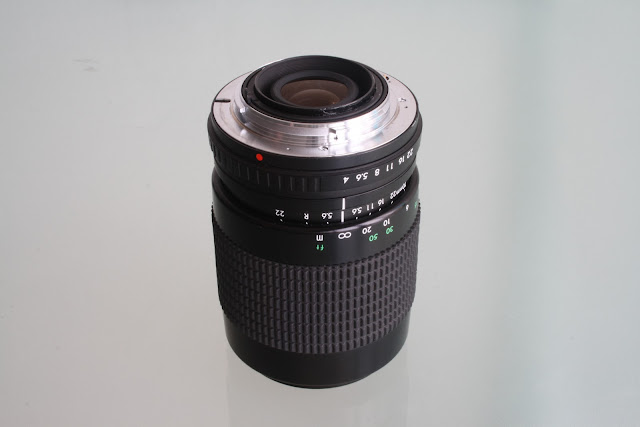It's a push/pull zoom-type, meaning that you grab the front of the lens and push or pull it away or towards the camera and focus by turning the same ring, this makes it very easy to zoom very quickly and allows you to zoom and focus simultaneously.
It is reasonably fast for the focal length, which makes it a little easier to get a sharp picture with little or no camera shake, even without a tripod.
I do prefer to use a tripod though as this completely eliminates the camera shake.
As the flange focal distance (More info) of a Praktica PB mount camera is 44.60mm and the distance of my Canon EF(S) mount is 44.00mm, it isn't possible to get an adapter that is thin enough to focus to infinity.
 |
| Praktica PB to Canon EF adapter |
 |
| Praktica PB to Canon EF adapter. |
This is a general problem with Prakticar lenses on a Canon camera, but if you can live with it and work around it, you can get really cheap lenses that have a rather good optical quality.













